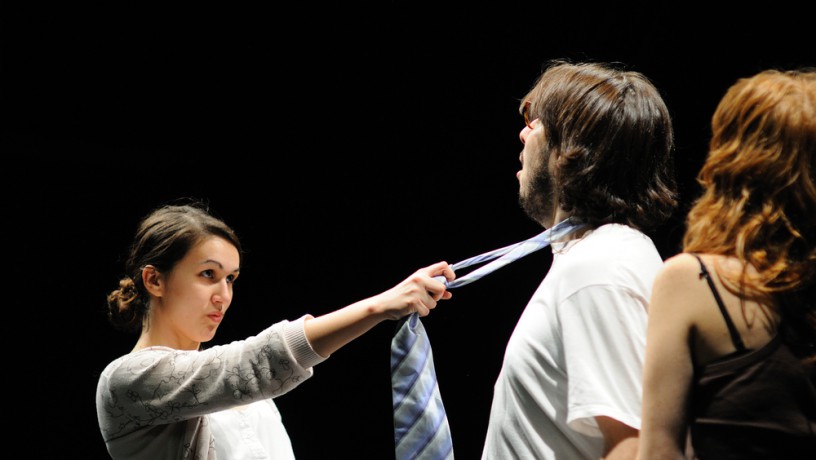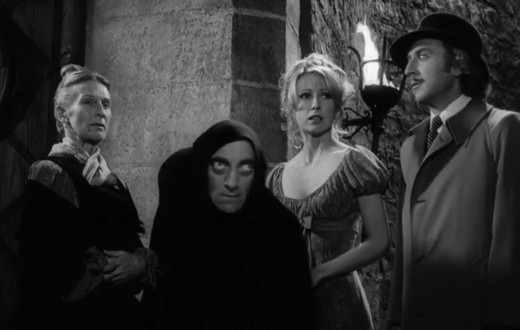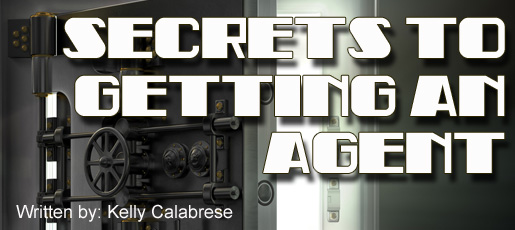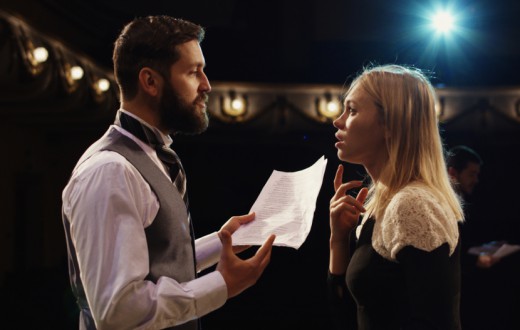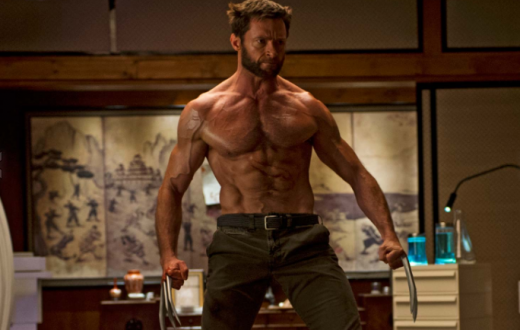As dedicated actors, we all know the importance of constantly challenging ourselves. We try new things, delve into art forms we haven’t previously explored, and of course we’re always on the lookout for new classes to take. And while no one would challenge the value of taking a scene study class, or a technique class, or an on-camera audition class, the fact is there’s one particular class that may be the most important one you’ll take in your entire career: an improvisation class.
Lots of actors look down their noses at improv, and I have to admit that at one point, I was one of them. If you’ve ever suffered through a bad, and I mean a really TERRIBLE improv performance – we’re talking so bad that they don’t even realize how bad they are, then you might understand. (Sorry, I still seem to be a bit traumatized by the experience…)
But since then, I’ve started the long road to improv recovery. I’ve really come around to seeing the value that improv has in not only our acting careers, but in our lives off-camera as well. Watching a truly gifted improv performer is a thing of magic. And here are a few ways taking a class can incorporate some of that improv magic into your life, on camera and off.
1. Listening
When I was just a fresh young sprout of an actor, I took an improv class at a local community theater. It was taught by a lovely actor who had her MFA in theater and was a gifted improviser in her own right, and I learned a lot from her. Unfortunately, the main memory I take away from that class was that there was this one older gentleman who was in class because he was trying to improve his public speaking skills – which is great. But the problem is that he was a member of the Toastmasters organization, a non-profit group that promotes better public speaking skills. And in every single improv game or routine we got into as a class, this guy would insist on shoehorning in something about the group:
Actor 1: Oh man, I’m not feeling well today! I think those clams we had last night were bad.
Actor 2: Well, you know, at least we had a great time at our Toastmasters meeting before dinner. Did you know that Toastmasters…
It was maddening.
But the point is that what he was doing was the opposite of listening, which, as we all know, is a big problem when it comes to acting. Not listening is perhaps even more of a no-no in improv – no matter how deeply connected you are as an actor to the concept of listening to your fellow actors and responding to what you are given at any moment, I promise that taking an improv class will help to sharpen your ability to really focus on the other person. Improv also helps your responses to come out more clean and more quickly, as practicing anything helps you to get better at it.
And these skills can come in handy in a variety of situations actors find themselves in apart from performing. How many auditions have you been to where the CD or director asks you tell them something about yourself? I have a CD friend who is constantly on about how many actors she reads who are perfect for the part, who deliver their lines flawlessly and really bring solid choices to the read, but the minute they put down their sides and have to speak as themselves, they fall apart. Any director would rather have an actor on set who can think on his or her feet over someone who looks the part but has no ability to innovate.
2. Getting comfortable with being uncomfortable
Acting is of course playing people we’re not, and therefore it quite literally takes us out of our comfort zone. And so naturally there are roles and situations we play throughout the course of our careers that are easier to lock into than others. But the fact is that developing your improv skills can really open up your acting to entirely new levels of discovery. That’s because if you think about it, going out on stage as an improviser you are deliberately putting yourself in the most uncomfortable spot imaginable. You’re saying, “I have little or no idea what’s about to happen, but I’m ready to roll with it.” Our instinct is to turn away and hide ourselves from situations that make us uncomfortable; we don’t like to be hurt. What improv teaches us is to open ourselves to these feelings of awkwardness and discomfort and to embrace them instead. It teaches us to take that awkward moment and to play around in it, to see where it leads rather than hiding from it. What’s more, improv teaches us that failure, however you want to define that, isn’t the end of the world. It teaches us that we’re not going to die if a joke doesn’t work or we stumble through a half-formed thought. It teaches us that it’s all going to be okay in the end. Not only that, the fearlessness you’ve learned in your improv class will also give you the freedom to explore and delve into more uncomfortable characters and scenes on a deeper, more honest and more profound level than ever before.
The practical, off-camera acting world application of this notion is that you can embrace that natural discomfort you feel walking in to an audition or into a meeting with an important industry professional like an agent, or someone else who has the ability to boost your career. The easier it is to allow yourself to feel uncomfortable, and to realize it’s not the end of the world, the better you’re going to be able to really let your true self shine through in these moments when it’s most important that you show people who you really are rather than hiding in a shell of fear.
3. Confidence
Which leads us to the big daddy of the actor’s toolkit, confidence. It may be a vital component of being a successful actor, but confidence isn’t really something you can teach – at least not on a nuts and bolts level like learning a dance step or a dialect. But the difference between a confident actor walking into an audition or on set versus an under-confident one is absolutely a key to success. You can be the best actor in the world, but if you give off an air of under-confidence, you send up a red flag for CDs and directors. A lack of confidence doesn’t necessarily imply a lack of ability, but what it does signal is someone who is in their head, and thus might not be reliable on set or on stage if something unexpected comes along, or if an innovation or new way of thinking about the scene is required. Confidence doesn’t mean a certainty you’ll be perfect at what you do – quite the opposite. It is a certainty that you can cope with whatever comes your way, even if you screw it up the first time.
Learning improv skills can really cement your confidence in yourself as not only an improviser and and actor, but also in those in between moments like agent meetings, networking, and the before and after audition banter. “Hey, I’ve stood on a stage and heard crickets with a roomful of people watching me perform in an improv class. What can you as an agent or CD possibly do or say to make me nervous after something like that?”
Getting involved in improv will not only help in the aforementioned ways, it will also open up your mind to creativity in your acting, and even creating your own material. Sky’s the limit once you feel comfortable with getting out of your comfort zone, improv-style! Get in a class today!
Also, join NYCastings today to get all the latest audition notices and to self-submit to hundreds of productions. Post your resume and headshot where it will be seen by thousands of top industry professionals looking for an actor just like you!

